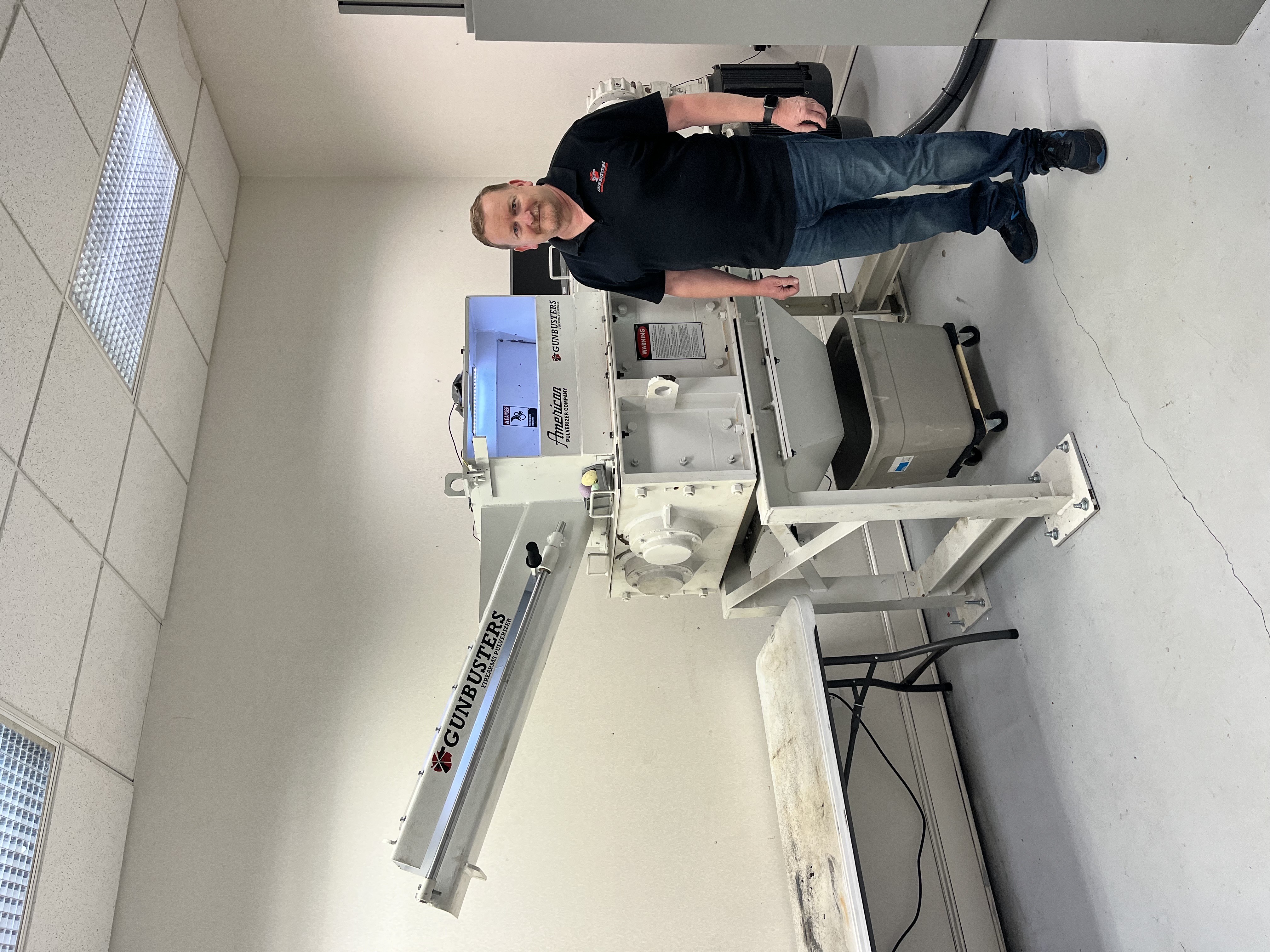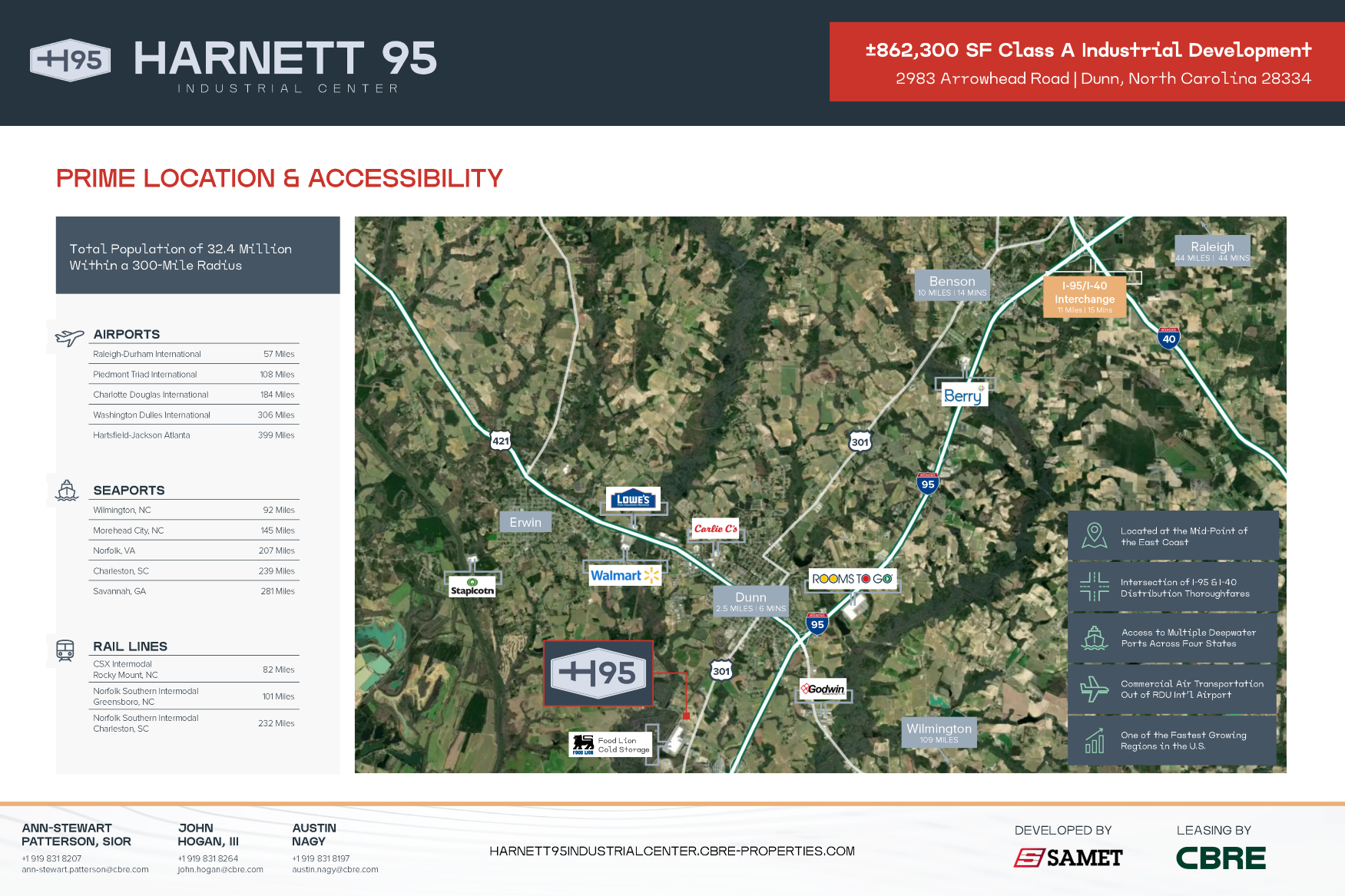
GunBusters, a countrywide organization headquartered in Chesterfield, Missouri, provides a safe and well-documented way of disposing of firearms for law enforcement agencies.
The company has partnered with 1,000 law enforcement agencies, including the sheriff’s offices in Wake and Durham Counties, and University of North Carolina Police at the state level. Federally, the company has also partnered with the U.S. Drug Enforcement Agency and the U.S. Geological Survey. All in all, the organization has disposed of 250,000 firearms.
Mack Gwinn, who oversees GunBusters’ operations in the southeast and in New England, said firearm disposal helps law enforcement in multiple ways.
“In the past, law enforcement agencies have either held on to these older weapons, which creates a problem with storage,” he said. For instance, Gwinn noted, police in Boston rent a facility with more than a million square feet in capacity to store evidence.
“As you can imagine that is an expense to the community there,” Gwinn said.
Holding on to older firearms, Gwinn said, also presents a liability risk for law enforcement.
“Legally, these law enforcement agencies are entitled to sell these weapons to federal firearms licensees, who can then sell them,” he said. “There are multiple examples of where these guns go back into the streets and into the wrong hands. That creates a liability for law enforcement and the municipalities themselves.”
Municipalities and law enforcement agencies can be sued if a gun that was used as evidence and is later sold to a certified dealer or a dealer is used to commit a crime, Gwinn said.
“Every firearm that we destroy won't end up back on the street,” he added. “A lot of the guns we destroy are not new guns. Overtime or by modification, these guns we destroy can malfunction where the safety doesn’t work, or they have a sensitive trigger. That could lead to someone getting hurt.”
There has been a significant increase in the number of firearms seized by and surrendered to law enforcement agencies, particularly in the last year. GunBusters’ website suggests that an analysis of U.S. Bureau of Alcohol, Tobacco, Firearm and Explosives (ATF) data reflects that more than 620,000 weapons used in crimes were traced in 2022. Annually, there are more than one million guns recovered by law enforcement agencies across the U.S.
Typically, some agencies seize guns that are then stored for years before making a decision on how to dispose of them, Gwinn said. In some instances, confiscated and surrendered firearms are destroyed by sawing in-half or cutting with an acetylene torch, while others are crushed with a sledgehammer, all of which are methods considered as unsafe by GunBusters experts. The agencies that transport weapons to other shredders or foundries report significant expenses, according to the GunBusters website.
To dispose of the weapons, GunBusters use an in-house shredder dubbed the Firearms Pulverizer system. This is a six-ton paper shredder with two engines of 240 horsepower each.
“We still haven’t found anything that it can’t grind up,” Gwinn said. “Basically, guns go in at the top of the machine, and scrap metal comes out at the bottom. The scrap metal can be recycled.”
To ensure the weapons’ destruction, GunBusters keeps meticulous records.
“We video the destruction of the weapons with a patent-protected video process. So that we can, if need be, pull up the actual video that identifies
the firearm,” Gwinn said.
GunBusters is seeking to expand locally, Gwinn said. He said he wants to partner with law enforcement agencies in Cumberland County.
“We've done work with agencies across the state,” Gwinn added. “And basically, it's always a situation where new law enforcement agencies are
hesitant. They feel like they are giving firearms to somebody that they may not know or haven't heard of before.”
To sell law enforcement organizations on GunBusters’ service, Gwinn has relied on a trusty comparison.
“I'm a big fan of most of the cars from the ‘60s and ‘70s, but there are certain cars that shouldn't be on the road anymore,” he said. “Those cars are just a danger to drivers on the road.”
As the local branch of GunBusters looks forward, Gwinn said he is looking to fill six new roles in Fayetteville.
“All employees have to be able to pass a background check,” he said. “Obviously because we are working with firearms, we can't hire convicted
felons, as they are prohibited from being in possession of firearms.”
Another necessary qualification, Gwinn said, is maturity.
“We need people that are mature enough to interact well with police chiefs, sheriffs, and municipal officials,” he said. “And our workers need to be energetic enough to look forward to driving across the state to pick up guns to bring back to our facility.”
Gwinn added that 12-15 hour days are not uncommon for workers at GunBusters.
“We are also looking for people who have attention to detail,” he said. “We've got to be able to account for each and every firearm that we pick up and destroy.”
__________________________________
Law enforcement agencies interested in learning more about the Fayetteville area GunBusters and how to partner with them are welcome to call their main line at 844-486-2878.

Graphic made with CanvaIt has been a very busy first month of the new year for the Greater Fayetteville Business Journal team and me. As many of you may know, I am the new publisher of the Greater Fayetteville Business Journal, and it is my pleasure

Harnett County is a dynamic and fast-growing region in central North Carolina, strategically positioned between Raleigh and the Research Triangle to the north, and Fayetteville and Fort Bragg to the south. Graphic provided by Harnett County Economic